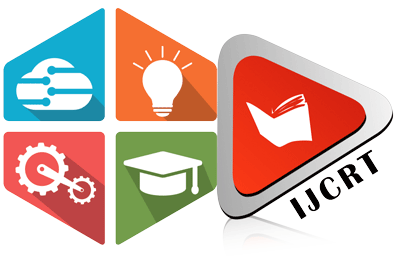INTERNATIONAL JOURNAL OF CREATIVE RESEARCH THOUGHTS - IJCRT (IJCRT.ORG)
International Peer Reviewed & Refereed Journals, Open Access Journal
ISSN Approved Journal No: 2320-2882 | Impact factor: 7.97 | ESTD Year: 2013
Call For Paper - Volume 12 | Issue 7 | Month- July 2024
Scholarly open access journals, Peer-reviewed, and Refereed Journals, Impact factor 7.97 (Calculate by google scholar and Semantic Scholar | AI-Powered Research Tool) , Multidisciplinary, Monthly, Indexing in all major database & Metadata, Citation Generator, Digital Object Identifier(DOI)
Contact Us Click Here
WhatsApp Contact Click Here
Published Paper Details:
Paper Title
SMART PLANT MONITORING SYSTEM
Authors
Vaibhav Godase, Vijaya Dhope, Amruta Chavan, Namrata Hadmode
Keywords
Internet of Things, machine learning, data analytics.
Abstract
A smart plant monitoring system is designed to provide comprehensive monitoring and management of plants in various environments, such as agriculture, horticulture, or indoor gardening. This system leverages advanced technologies like Internet of Things (IoT), sensors, data analytics, and machine learning to optimize plant growth, conserve resources, and enhance productivity. Here's a detailed abstract outlining the components and functionalities of such a system: Sensor Network: The backbone of the smart plant monitoring system is a network of sensors deployed within the plant environment. These sensors measure various parameters critical to plant health and growth, including soil moisture, temperature, humidity, light intensity, pH levels, and nutrient levels. Data Acquisition and Transmission: Sensor data is collected at regular intervals and transmitted to a central control system or cloud platform using wireless communication protocols such as Wi-Fi, Bluetooth, or LoRaWAN. This ensures real-time monitoring and enables remote access to the data from anywhere with an internet connection. Data Processing and Analysis: Upon receiving the sensor data, the system processes it using data analytics techniques to derive meaningful insights. Machine learning algorithms may be employed to analyze historical data patterns, predict future trends, detect anomalies, and recommend optimal plant care strategies. Monitoring and Control: The system provides users with a user-friendly interface, typically accessible through a web or mobile application, to monitor the status of their plants in real- time. Users can view sensor readings, receive alerts for abnormal conditions such as water scarcity or pest infestation, and remotely control connected devices like irrigation systems or grow lights. Automation: Smart plant monitoring systems often incorporate automation features to streamline plant care tasks. For example, based on predefined thresholds and algorithms, the system can automatically adjust watering schedules, regulate environmental conditions, and administer nutrient supplements, reducing manual intervention and ensuring consistent plant care. Integration with External Systems: To enhance functionality and interoperability, the smart plant monitoring system may integrate with external systems and databases. This could include weather forecasting services, soil databases, plant databases, and agricultural advisory platforms, enriching the analysis and recommendations provided to users.Scalability and Customization: The system is designed to be scalable to accommodate varying plant sizes and cultivation setups, from small home gardens to large-scale agricultural operations. Additionally, users may have the flexibility to customize settings and preferences according to their specific plant species, growth stage, and environmental conditions. Benefits: By continuously monitoring and optimizing plant conditions, a smart plant monitoring system offers several benefits, including improved crop yields, resource efficiency (such as water and energy conservation), reduced labor costs, early detection of diseases and pests, and overall sustainability in agriculture and gardening practices .In summary, a smart plant monitoring system integrates sensor technology, data analytics, and automation to revolutionize plant care, enabling users to cultivate healthier plants with greater efficiency and precision.
IJCRT's Publication Details
Unique Identification Number - IJCRT2405203
Paper ID - 259533
Page Number(s) - b844-b849
Pubished in - Volume 12 | Issue 5 | May 2024
DOI (Digital Object Identifier) -
Publisher Name - IJCRT | www.ijcrt.org | ISSN : 2320-2882
E-ISSN Number - 2320-2882
Cite this article
Vaibhav Godase, Vijaya Dhope, Amruta Chavan, Namrata Hadmode, "SMART PLANT MONITORING SYSTEM", International Journal of Creative Research Thoughts (IJCRT), ISSN:2320-2882, Volume.12, Issue 5, pp.b844-b849, May 2024, Available at :http://www.ijcrt.org/papers/IJCRT2405203.pdf
Article Preview
Indexing Partners
Call For Paper July 2024
Call For Papers
July 2024
Volume 12 | Issue 7
Last Date :
31-Jul-2024
Submit Manuscript Online Impact Factor: 7.97 Review Results : Within 02-03 Days Paper Publication : Within 02-03 Days
July 2024
Volume 12 | Issue 7
Last Date :
31-Jul-2024
Submit Manuscript Online Impact Factor: 7.97 Review Results : Within 02-03 Days Paper Publication : Within 02-03 Days
Published Issue Details
For Authors
Forms / Downloads
Other IMP Links
Indexing Partner
Research Area
LICENSE
ISSN and 7.97 Impact Factor Details

ISSN: 2320-2882 Impact Factor: 7.97 and ISSN APPROVED Journal Starting Year (ESTD) : 2013
ISSN and 7.97 Impact Factor Details

ISSN: 2320-2882 Impact Factor: 7.97 and ISSN APPROVED Journal Starting Year (ESTD) : 2013
DOI Details
CONFERENCE
CONFERENCE MANAGMENT & PUBLICATION CONFERENCE PROPOSAL
RECENT CONFERENCE

CONFERENCE PROPOSAL CONFERENCE PROCEEDINGS

CONFERENCE PROPOSAL CONFERENCE PROCEEDINGS
For Reviewer /Referral (RMS) Earn 500 per paper
Important Links
NEWS & Conference
Digital Library
IJCRT RMS | Earn 500 Per Paper.
LICENSE
Indexing Partner





































































